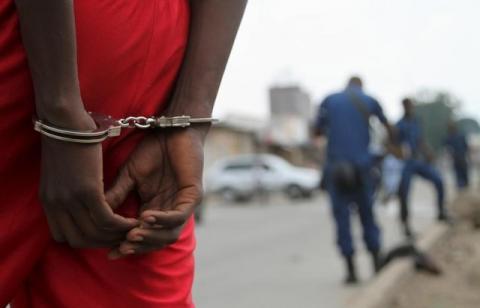Advertisement
ICC to investigate past year's Burundi clashes
AMSTERDAM (Reuters) - The international war crimes court will investigate allegations of imprisonment and violence in Burundi, which has been wracked by unrest since a political crisis erupted a year ago.
The office of the U.N. human rights commissioner estimates at least 430 people have been killed there since last April, when President Pierre Nkurunziza launched a bid for a third term in office and then won a disputed election in July. At least three armed rebel groups have since emerged in the country.
Announcing a preliminary examination, the International Criminal Court's prosecutor Fatou Bensouda said on Monday she had seen reports of imprisonment, torture and rape.
"At least 3,400 people have been arrested and over 230,000 Burundians forced to seek refuge in neighboring countries," she said in a statement.
Preliminary examinations at the court, based mainly on publicly available information, can last months or years before leading to a possible full investigation. Only then can criminal charges be brought against individuals suspected of war crimes or crimes against humanity.
Western powers and regional states fear Burundi could slide back into the ethnically charged conflict that characterized its 1993-2005 civil war.
Opponents accuse Nkurunziza of violating Burundi's constitution and a peace agreement that ended the civil war by running for a third term. The president and his supporters cite a court ruling that said he could run again.
At the weekend, a Burundian army officer who had been held in captivity by a rebel group was handed back to his unit, the International Committee of the Red Cross said.
The ICC recently dropped its last case against the leaders of regional power Kenya after a fierce lobbying campaign by the country and its African allies alleging that the court unfairly singled out Africans for prosecution.
(Reporting by Thomas Escritt; editing by John Stonestreet)



















Add new comment